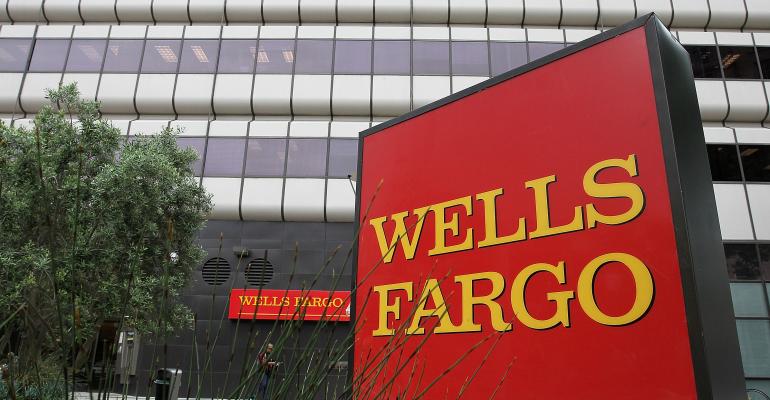A FINRA arbitration panel has ordered Wells Fargo Advisors Financial Network to pay a fine of $400 per day in connection with a claim by a New Jersey widow that her Wells broker, Leonard Kinsman, of Staten Island, lost almost $600,000 of her $2,250,000 life insurance payment through risky trades made without her consent.
The St. Louis-based wealth management unit of Wells Fargo is being fined for not yet complying with a discovery order related to the Kinsman case. In her FINRA complaint, Robin Fratto, 54, of Freehold, alleged that Kinsman, whom she met while he was with Merrill Lynch (he jumped ship for Wells in 2016 and left in 2019) forged her signature on a number of documents authorizing high-risk trading with the proceeds of the life insurance settlement, which she received in the wake of her husband’s death in 2011. He is also accused of improperly selling her two illiquid annuity products with high fees that she had to cash in prematurely to get her $580,000 house out of foreclosure.
Fratto, a housewife with three daughters and a confessedly “unsophisticated investor,” alleged in the complaint that she had initially sought out Kinsman to invest her life insurance payment in a conservative manner so that she could maintain her family’s lifestyle and pay for her children’s educations.
Instead, she alleged, Kinsman mischaracterized her risk appetite, overstated her net worth by several million dollars and listed her as “an experienced aggressive trader,” in account opening documents.
Kinsman also had her open up “unsuitable” margin and options trading accounts, which was “aimed at pure speculation.”
He then made “speculative” investments with the money, buying puts on the market calls on gold, foreign oil stocks, large short-term bets of several hundred thousand dollars on a single mutual fund and other “improper” short-term trading, all of which earned him “substantial commissions and likely undisclosed fees” despite incurring “large losses” for the client.
Kinsman went on to advise Fratto to buy two annuity products for $700,000, which tied up about 70% of her disposable income, the complaint alleges. These were supposed to generate 5% in annual returns, but did not, and the housewife had to liquidate them, losing “substantial additional funds as a result” and was assessed "significant penalties.”
Kinsman is no stranger to allegations of improper promises on sales of annuities, as he settled in 2016 a complaint to FINRA by another Wells' client that he had falsely promised a client a 5% investment return on the product and that there were no fees.
Wells has yet to produce the “discovery” documentation, hence the sanctions. If the two parties do not arrive at a settlement, the next step for the case would be an arbitration hearing. FINRA declined to comment.
About 75% of the approximately 1,000 cases the organization receives each year end up settling, usually with the firm or advisor paying the client without admitting wrongdoing, often to avoid the legal costs of arbitration.
Wells Fargo Advisors spokeswoman Jackie Knolhoff declined to comment for this article. Kinsman, who is not represented by an attorney, could not be reached for comment.





